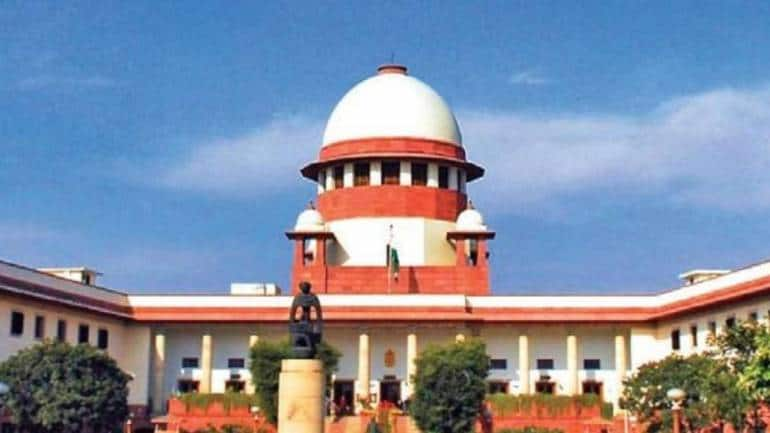Finolex Cables AGM: SC summons NCLAT bench for defying order

Finolex Cables AGM: SC summons NCLAT bench for defying order
The Supreme Court’s summoning of the National Company Law Appellate Tribunal (NCLAT) on October 18 was a significant move in the ongoing Finolex Cables dispute. The bench, led by Chief Justice of India (CJI) DY Chandrachud, took action against the NCLAT for allegedly disregarding its directives concerning the Annual General Meeting (AGM) of the company. The decision to set aside the NCLAT order in the Finolex dispute was rooted in the belief that the NCLAT had acted in defiance of the Supreme Court’s specific instructions regarding the AGM.
The summoning of the NCLAT bench signifies the Supreme Court’s dedication to ensuring adherence to its directives and maintaining the integrity of legal processes. By ordering a fresh hearing of the case, the Supreme Court has demonstrated its commitment to upholding the rule of law and ensuring that the dispute is resolved in accordance with the established legal framework.

This development underscores the significance of judicial oversight in ensuring the proper implementation of legal procedures and the protection of the rights and interests of all parties involved in the dispute. It also highlights the Supreme Court’s role as the highest judicial authority in the country, responsible for maintaining the coherence and fairness of the legal system.
The statement made by Chief Justice of India (CJI) DY Chandrachud during the proceedings reflects a critical assessment of the functioning of the National Company Law Tribunal (NCLT) and the National Company Law Appellate Tribunal (NCLAT). The mention of the tribunals having “gone to rot” suggests a perception of systemic issues or deficiencies that may have affected their functioning or adherence to legal protocols. Despite this critical assessment, the CJI acknowledged the professional integrity and dignity of the NCLAT chairperson, Justice (retd) Ashok Bhushan.

The context of these remarks, made during the hearing of the case concerning the Annual General Meeting of Finolex Cables, further underscores the seriousness with which the Supreme Court views the adherence to its directives and the necessity of upholding legal principles within the functioning of these tribunals.
The SC’s decision to order an inquiry into the actions of the NCLAT bench for allegedly defying its orders demonstrates the court’s commitment to maintaining the integrity and authority of its directives, ensuring fair legal proceedings, and upholding the rule of law in the country’s corporate and legal landscape.

The recognition of Justice (retd) Ashok Bhushan’s professional conduct amidst this criticism highlights the significance of maintaining the dignity and integrity of the judiciary, emphasizing the importance of upholding judicial standards even in the face of criticism or challenges within the legal system.
The decision made by the National Company Law Appellate Tribunal (NCLAT) on October 13 to allow Deepak Chhabria to continue serving as the chairman of Finolex Cables while suspending the modifications to the company’s Articles of Association is a significant development in the ongoing legal proceedings.
Furthermore, the directive for NCLAT chairperson Justice Bhushan to conduct an inquiry into the alleged defiance of the apex court order by a bench of the appellate tribunal underscores the importance of ensuring the adherence to judicial directives and the proper functioning of the legal system. The specified deadline for Justice Bhushan to submit the inquiry report, set for 5 pm on October 16, highlights the urgency with which the matter was being addressed.
This sequence of events reflects the judicial system’s commitment to maintaining transparency and accountability in legal proceedings, particularly concerning corporate affairs and the governance of companies such as Finolex Cables. The actions taken by the NCLAT and the subsequent directives from the higher judicial authorities are crucial in upholding the rule of law and ensuring fair and just outcomes in legal disputes.
The statement from the court indicating that the actions under consideration would constitute defiance suggests that the issue is being taken seriously within the legal framework. The reference to the National Company Law Appellate Tribunal’s (NCLAT) direction on September 21, to maintain the status quo on the Annual General Meeting (AGM) of Finolex Cables until a resolution was reached regarding the dispute between Prakash Chabria and Deepak Chabria, highlights the underlying complexity of the case.
The ongoing legal battle between the cousins, Prakash Chabria and Deepak Chabria, underscores the importance of resolving internal corporate disputes through proper legal channels while adhering to the directives set forth by the judicial system. The matter’s significance in maintaining corporate governance and ensuring the fair and just operation of companies, particularly in high-stake situations, highlights the judiciary’s commitment to upholding the rule of law and ensuring a transparent and accountable legal process.
The Supreme Court’s vigilance and commitment to addressing the issue of defiance underscore the importance of maintaining the integrity of judicial directives and decisions in the context of corporate disputes, further emphasizing the critical role of the legal system in ensuring justice and equity within the corporate landscape.




